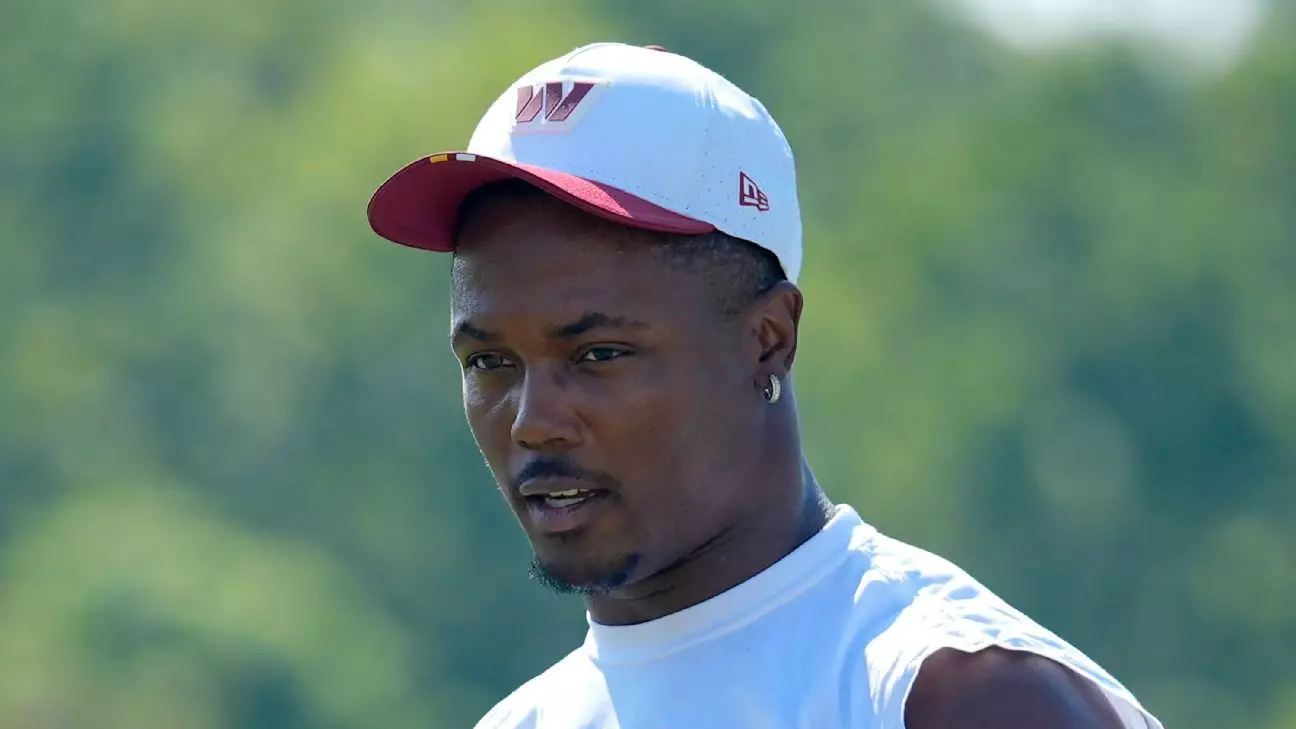In the evolving landscape of professional sports, the story of Terry McLaurin illuminates a broader systemic issue—one where talented athletes often find themselves voiceless pawns in the corporate machinery of franchise owners. McLaurin’s recent activation from the PUP list signals a tangible step in his injury recovery, yet beneath that surface lies a deeper narrative of contractual uncertainty, undervaluation, and the erosion of athlete trust. While fans see a player’s return to practice as an inspiring comeback, the reality for many stars is far more complex: a struggle for fair compensation and recognition amid an environment that treats performance and loyalty as cheap commodities.
Too often, franchise owners wield their financial might to dictate terms, leaving players in a precarious position. McLaurin’s impasse—stemming from contractual negotiations that have dragged on without resolution—exposes the power imbalance prevalent in the league. Despite his stellar performance, including back-to-back Pro Bowls and critical red zone touchdowns, he remains undervalued relative to league peers, revealing a stark disparity in how talent is valued. The fact that he publicly expressed frustration with the stalled talks underscores a widening gap between player expectations and franchise commitments, highlighting a critical fault line that threatens to undermine the integrity of the sport.
Ownership’s Priorities: Profit Over Player Well-being
The NFL’s economic priorities seem increasingly misaligned with the welfare of its players, especially when negotiations stall or players threaten to sit out. McLaurin’s situation—facing the potential loss of a significant game check should he miss games—exemplifies the transactional nature of modern sports contracts. While owners leverage the business side to negotiate for less, players like McLaurin are caught in systemic quandaries that punish them financially for seeking what they deserve. The fact that he was fined substantially for the holdout and now risks forfeiting hundreds of thousands of dollars over contract disputes reveals a blatant exploitation of athlete vulnerability.
As franchise owners push for lower annual salaries, citing market pressures and salary caps, players find themselves undervalued, with their contributions dismissed as negotiable assets. McLaurin’s plea for fair valuation—comparing his offer to the lucrative deal of DK Metcalf—exposes how far franchises are from recognizing the true worth of star players. This disparity not only fosters resentment but also undermines the integrity of the league, which claims to promote competition and fairness but often defaults to profit-driven motives that devalue human effort and dedication.
The Human Cost of Contract Battles and the Erosion of Trust
The personal toll on players like McLaurin cannot be overstated. Frustration boils over as athletes navigate a web of contract negotiations while sustaining injuries and maintaining peak performance. When McLaurin publicly voiced his disappointment and stated he would not return to the field until negotiations made progress, it underscored how contractual disputes are no longer just financial disagreements—they are also deeply personal battles over respect and valuation.
Furthermore, this ongoing saga damages the fragile trust between players and franchise management. McLaurin’s expressed desire to stay in Washington reveals loyalty rooted in personal ties—his family, his investments, his career dreams—yet these bonds are strained by the systemic indifference shown by ownership. Athletic careers are fleeting, and for many, football isn’t just a job—it’s a livelihood that sustains their families and communities. When franchise owners treat these careers as bargaining chips, they risk alienating the very talent that draws fans and generates revenue.
In the wider political context, this issue exemplifies the need for greater accountability and a shift toward a more equitable league structure. Players must be protected from exploitation, and franchises should be held accountable for fostering environments of fairness and respect. McLaurin’s story, therefore, isn’t just about one player’s contract; it’s a clarion call for reform—one that prioritizes human dignity over dollar signs and champions a league where talent truly earns its worth. Only through acknowledging these systemic flaws can the sport move toward a more just and sustainable future.


Leave a Reply